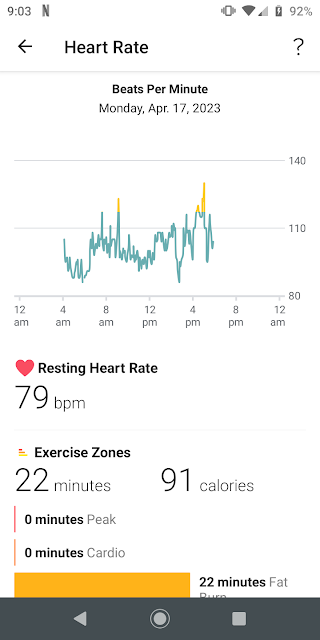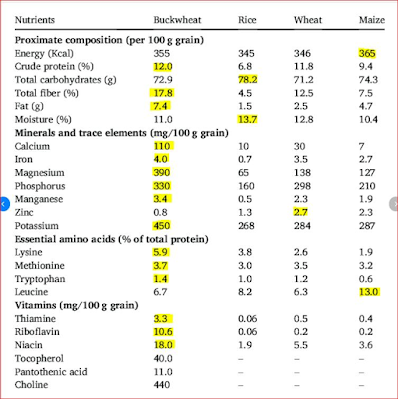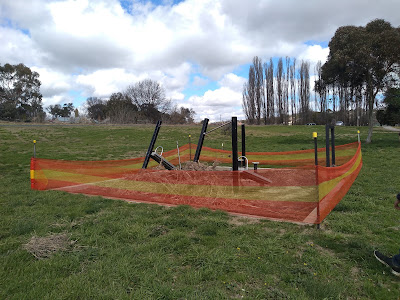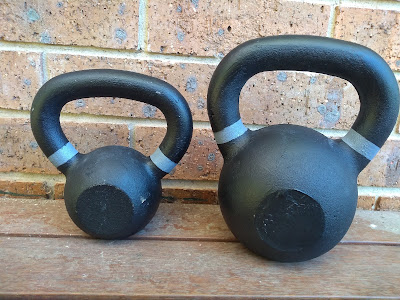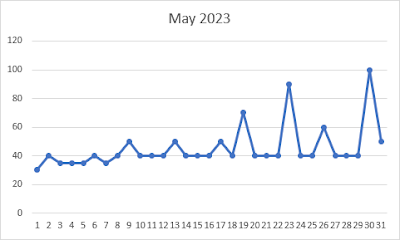There is an old saying that goes "Shchi da Kasha, Pisha Nasha", which roughly means "Cabbage soup and buckwheat porridge are our food".
There seems to be solid logic behind this saying that goes beyond the fact that these were some of the few foods that were almost always available in the old days.
Most of my life people have told me that I need to fatten up and that I am too thin. My body is not like theirs, for me to be healthy I need to be relatively thin.
Gaining fat for a skinny person can be dangerous and unhealthy. Gaining weight by gaining muscle on the other hand is healthy.
If I eat poorly and don't exercise I tend to lose weight (which is the opposite of many people). I believe this is mostly from losing muscle mass, and gaining fat around my organs. This is a bad thing.
If I 'eat healthy' and exercise I tend to gain weight (again this is the opposite for many people). This is mostly from losing fat around my organs, and gaining muscle mass. This is a good thing. This is how my body works, and if you are skinny fat it is likely how your body also works. If you are skinny fat, you want to gain weight but not gain fat.
Gaining fat for a skinny fat person is unhealthy as they mostly gain fat around their organs. Skinny fat people need to gain muscle to be healthy.
I need to be relatively thin to be healthy, but for some time I kept slipping below my healthy range. For a while my weight was too low, and I was worried.
To help keep an eye on things I recorded my weight each week for over a year. I got on top of things, and started to put on a little weight, you will see this in the graphs below.
Weighing in at the same time, on the same day each week, wearing the same thing, for an entire year (plus a few extra weeks), enhances the data integrity and allows for some interpretation of the data and some fascinating conclusions to be drawn.
 |
| BMI stats for over a year |
In the above graph I weighed myself at the same day each week, around the same time, and wearing the same thing (just my glasses so I could read the scale).
A 'healthy' Body Mass Index (BMI) is considered to be from 18.5 to 24.9 and as you can see I spent most of the time within that range. My average BMI over the past year, even when you include the first few outliers, was well within the healthy BMI range.
Looking at the graph you can't help but notice the initial sharp increase. This is when I stopped eating wheatbix for breakfast, and started to eat buckwheat (grechnevaya kasha). It changed my weight and helped me become healthier.
During the initial BMI increase, I visibly lost fat even though I was gaining weight. As I gained weight and lost fat, presumably I was gaining muscle. Prior to recording these stats my cholesterol was a bit high, and my LDL to HDL ratio was not great. Towards the end of these stats my cholesterol is low, and my LDL to HDL ratio is perfect.
As nothing else (diet, exercise) changed, I am pretty sure that this is entirely due to eating grechka instead of wheatbix for breakfast. It appears that buckwheat is far more healthy for me than wheat.
I also recorded in kilograms how much the BMI deviated from the ‘healthy’ line in the graph below. The bar on the right shows the entire healthy range to provide context. 0 is the healthy line, anything below zero shows how far below the healthy range I dipped, and anything above shows how far into the healthy range I reached. As you can see, I was at the lower end of of the healthy BMI range, which is where my body needs to be in order to be healthy.
So there you have it, a little over one year of BMI stats collected weekly. Initially I was a bit too low. I started eating buckwheat instead of wheat. Since eating buckwheat every day my BMI has been healthier, I have lost fat, my cholesterol level has dropped, my LDL to HDL ratio has improved, and I gained weight.
If you are skinny fat, record your weight every seek for a few weeks. Weigh in at the same time at the same day each week, try to do this before getting in the shower so you are not weighing clothes. Then start eating grechnevaya kasha for breakfast.
Buckwheat is high in high quality protein, and very nutritious. Perhaps buckwheat will make you stronger and healthier.
Shchi da Kasha, Pisha Nasha (Щи да каша – пиша наша) - Cabbage soup and buckwheat are our food.









